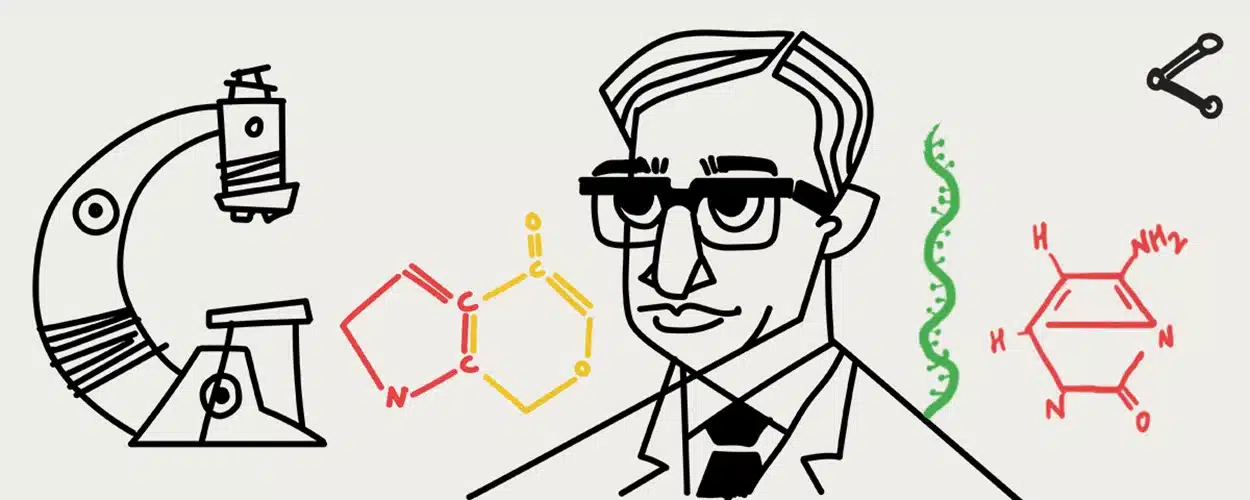Genetic Pioneer: The Groundbreaking Work of Har Gobind Khorana

Image Courtesy: Google Doodle
Har Gobind Khorana (9 January 1922 – 9 November 2011) was an Indian-born American biochemist. He shared the 1968 Nobel Prize for Physiology or Medicine with Marshall W. Nirenberg and Robert W. Holley for research that showed the order of nucleotides in nucleic acids, which carry the genetic code of the cell and control the cell’s synthesis of proteins. Khorana and Nirenberg were also awarded the Louisa Gross Horwitz Prize from Columbia University in the same year.
Life and Career
He was born on 9 January 1922, in Raipur, British India, and received his undergraduate and graduate education in India before moving to England for postdoctoral research. He attended D.A.V. (Dayanand Anglo-Vedic) High School in Multan, in West Punjab. Later, he studied at the Punjab University in Lahore, with the assistance of scholarships, where he obtained a bachelor’s degree in 1943 and a Master of Science degree in 1945.
In 1952, he moved to the United States to take a faculty position at the University of Wisconsin-Madison, where he spent the rest of his career. In addition to his work on the genetic code, Khorana made significant contributions to the understanding of the biochemical basis of vision and the mechanisms of gene expression. He was a dedicated teacher and mentor, and his work has had a lasting impact on the field of molecular biology. Khorana died on 9 November 2011, at the age of 89.
Life and Career
Har Gobind Khorana was awarded the Nobel Prize in Physiology or Medicine in 1968, along with Robert W. Holley and Marshall W. Nirenberg, for their “interpretation of the genetic code and its function in protein synthesis.” In his Nobel Lecture, Khorana discussed the work that led to this award, including his studies on the synthesis of nucleotides and their incorporation into RNA, and his contributions to the understanding of the genetic code.
Khorana’s work has had a lasting impact on the field of molecular biology and has contributed to our understanding of how genes function and how they can be manipulated. His pioneering research laid the foundation for the development of gene therapy and other technologies that are used to treat genetic diseases. In addition to the Nobel Prize, Khorana received many other awards and honors throughout his career, including the National Medal of Science, the Albert Lasker Basic Medical Research Award, and the Louisa Gross Horwitz Prize.
Khorana was also a dedicated teacher and mentor, and his contributions to science have been recognized by the establishment of the Khorana Program, a prestigious international exchange program for graduate students and postdoctoral researchers. The program, which is sponsored by the Indian and US governments, aims to foster collaboration and build scientific capacity in both countries. On 9 January 2018, Google Doodle celebrated Har Gobind Khorana’s 96th Birthday.
Observer Voice is the one stop site for National, International news, Sports, Editor’s Choice, Art/culture contents, Quotes and much more. We also cover historical contents. Historical contents includes World History, Indian History, and what happened today. The website also covers Entertainment across the India and World.

